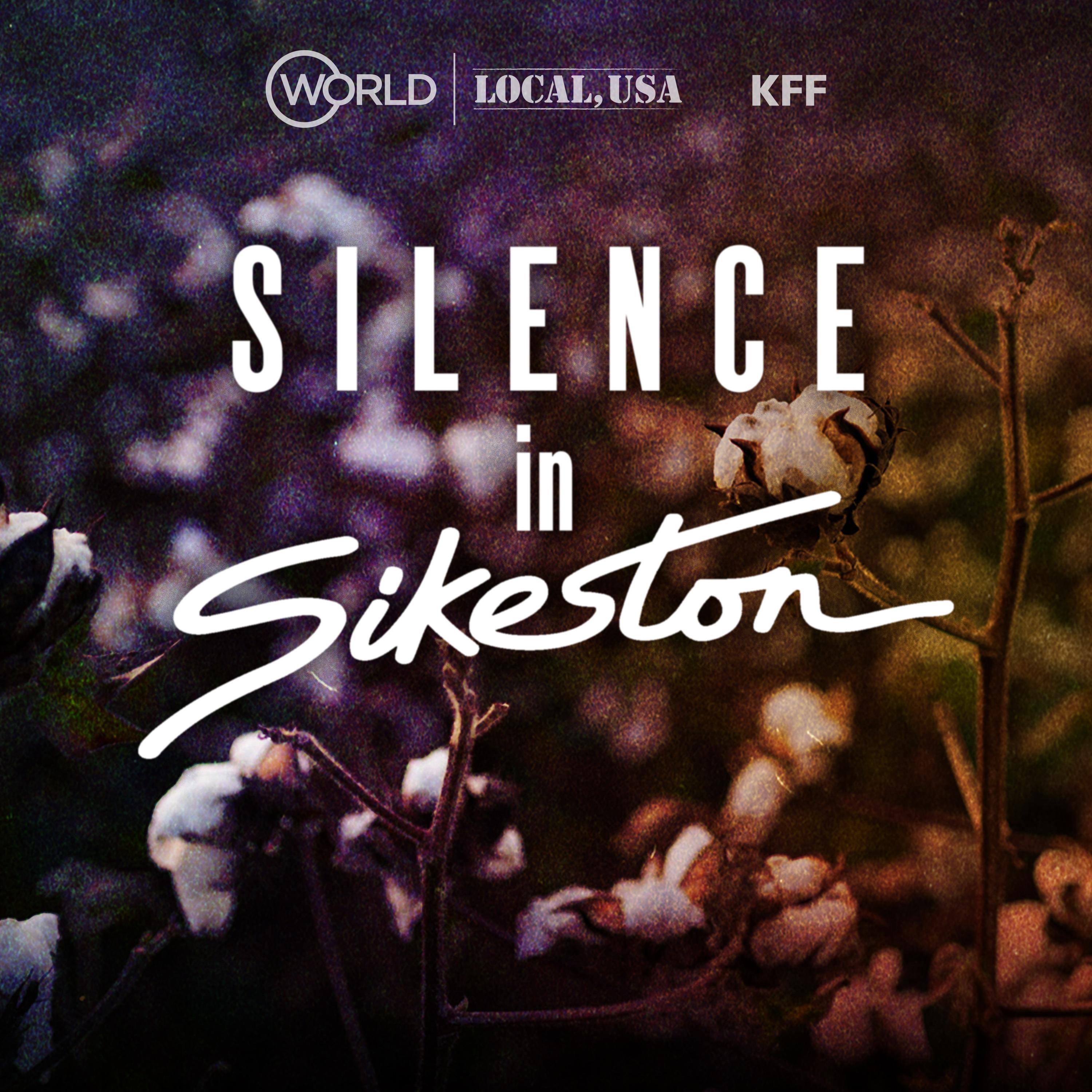
WORLD Channel Presents: Silence in Sikeston
WORLD Channel“Silence in Sikeston” explores what it means to live with racism and violence, then charts the toll on our health — from hives, high blood pressure, inflammation and heart disease to struggles with mental health.
In 1942, Cleo Wright was removed from a Sikeston, Missouri, jail and lynched by a mob. Nearly 80 years later, Denzel Taylor was killed by police in the same community. The deaths of these two Black fathers tell a story about the public health consequences of racism and systemic bias. Meet residents determined to live healthier lives after generations of community silence. “Silence in Sikeston” is the podcast about finding the words to say the things that go unsaid. This is an invitation. Perhaps this journalism, these stories, will spark a conversation that you’ve been meaning to have.
Hosted by Cara Anthony, a KFF Health News Midwest correspondent and an Edward R. Murrow and National Association of Black Journalists award-winning reporter from East St. Louis, Illinois. Her work has appeared in The New York Times, Time magazine, NPR, and other outlets nationwide.
The limited series drops every Tuesday starting Sept. 10. Subscribe and listen on Apple Podcasts, Spotify, Amazon Music, iHeart or wherever you get your podcasts.
The podcast is a production of KFF Health News and WORLD. Distributed by PRX.📱Watch the accompanying documentary, “Silence in Sikeston,” starting Sept. 16. Learn more here.
Follow WORLD on our Newsletter, YouTube, Facebook, X, Instagram, Tiktok.
“Silence in Sikeston” explores what it means to live with racism and violence, then charts the toll on our health — from hives, high blood pressure, inflammation and heart disease to struggles with mental health.
In 1942, Cleo Wright was removed from a Sikeston, Missouri, jail and lynched by a mob. Nearly 80 years later, Denzel Taylor was killed by police in the same community. The deaths of these two Black fathers tell a story about the public health consequences of racism and systemic bias. Meet residents determined to live healthier lives after generations of community silence. “Silence in Sikeston” is the podcast about finding the words to say the things that go unsaid. This is an invitation. Perhaps this journalism, these stories, will spark a conversation that you’ve been meaning to have.
Hosted by Cara Anthony, a KFF Health News Midwest correspondent and an Edward R. Murrow and National Association of Black Journalists award-winning reporter from East St. Louis, Illinois. Her work has appeared in The New York Times, Time magazine, NPR, and other outlets nationwide.
The limited series drops every Tuesday starting Sept. 10. Subscribe and listen on Apple Podcasts, Spotify, Amazon Music, iHeart or wherever you get your podcasts.
The podcast is a production of KFF Health News and WORLD. Distributed by PRX.📱Watch the accompanying documentary, “Silence in Sikeston,” starting Sept. 16. Learn more here.
Follow WORLD on our Newsletter, YouTube, Facebook, X, Instagram, Tiktok.





![Thumbnail for "[BONUS] Meet the Makers". Thumbnail for "[BONUS] Meet the Makers".](/_next/image?url=https%3A%2F%2Ff.prxu.org%2F7980%2Fimages%2Ff099e17d-d489-4d3a-8cd0-e73bcaa47ddb%2FWRLD_SilenceInSikeston_Podcast_3000x3000_F1.jpg&w=3840&q=75)
Eps 1 Racism Can Make You Sick

📱Watch the accompanying documentary, “Silence in Sikeston,” starting Sept. 16. Learn more here.
The 1942 lynching of Cleo Wright in Sikeston, Missouri, and conversations with one of the few remaining witnesses launch a discussion about the health consequences of racism and violence in the United States. Host Cara Anthony speaks with history scholar Eddie R. Cole and racial equity scholar Keisha Bentley-Edwards about the physical, mental, and emotional burdens on Sikeston residents and all Black Americans.
Hosted by Cara Anthony, a KFF Health News Midwest correspondent and an Edward R. Murrow and National Association of Black Journalists award-winning reporter from East St. Louis, Illinois. Her work has appeared in The New York Times, Time magazine, NPR, and other outlets nationwide.
A transcript of this podcast episode is accessible here.
The podcast is a production of KFF Health News and WORLD. Distributed by PRX.
The limited series drops every Tuesday. Subscribe and listen on Apple Podcasts, Spotify, Amazon Music, iHeart or wherever you get your podcasts.
Follow WORLD: